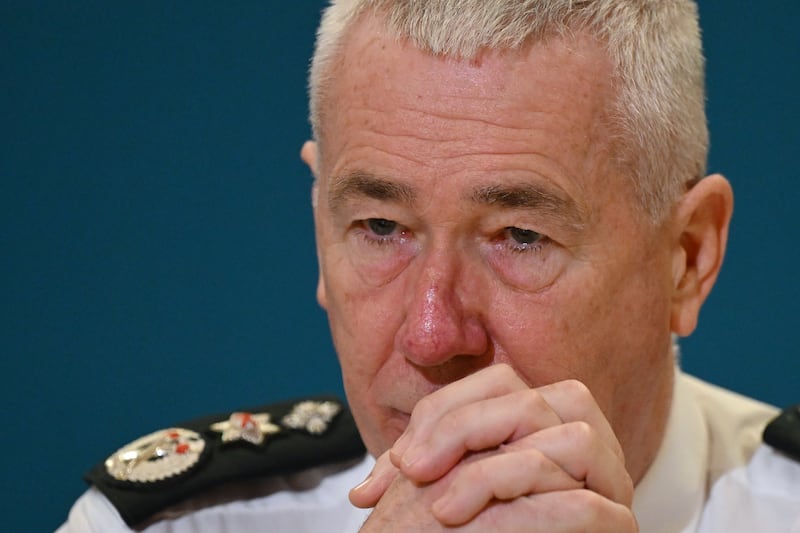At several desperate low points in the last two years, Darragh McElhinney was praying he’d get a stress fracture. That cursed, debilitating bone injury which demands a complete break from running, then a gradual return to fitness.
Maybe then he’d have some explanation for why in his own words he’d “gone shit”, his once brilliantly promising running career steadily disintegrating. Because instead there was only pure frustration and an enduring list of unanswered questions.
For two years McElhinney pressed on, one step forward followed by two steps back. All the while he could hear the doubts around him, and in his own head too.
“Every athlete will have some sort of hiccup,” he says. “Most people just get injured, get that diagnosed, get better, then get back to where you were.
READ MORE
“For me, I didn’t have clear answers, that made it a lot harder. I said plenty of times last summer, ‘Jeez I’d love if I just got a f**king stress fracture’. At least then when someone asked me what’s wrong, no one would ask any more questions, rather than ‘what’s wrong?’, and I’m like ‘I don’t know’.
A lesser athlete may have contemplated defeat, only McElhinney never gave up the chase. His patience and resilience eventually booked him a spot in the 5,000m at the World Championships in Tokyo this week.
Speaking at the Irish team hotel on Thursday, the 24-year-old looks and feels at home again surrounded by the world’s best athletes, finally back to his younger self with his bleached blonde hair presenting a suitably fresh look.

“Even casually, I’d get asked a lot the last couple of years, like ‘where were you?’ And even for myself it’s hard to wrap my head around, because I never had a clear answer. A lot of time I just thought I was gone shit, like. I honestly thought I’m just not good enough, basically.
“But when you’re performing badly, you’ve no choice but to put the head down, try to figure it out.”
A running prodigy from his early school days in Glengarriff, west Cork, McElhinney repeatedly broke Irish underage records and bagged several international medals in the process. At 16, he broke the Irish youth 3,000m record which had belonged to John Treacy since 1974.
He won 5,000m bronze at the European Under-20 Championships in 2019 and was the Irish star of the European Cross-Country Championships when they were staged in Dublin in 2021, winning silver in the under-23 race and helping the team win gold. The possibilities were only beginning.
Pursuing his career in UCD, under the guidance of coach Emmet Dunleavy, at that point McElhinney also signed a three-year deal with Adidas, intending to see him through to the Paris Olympics last summer. He never got close and the Adidas deal was never renewed.
He traces his last properly good race back to the European Indoors in Istanbul in March 2023, where he finished fourth in the 3,000m. There were rare flashes of his potential since – he ran 7:39.92 indoors in early 2024 – but he was unable to finish some races, and even the easy training days became a dreadful chore.

Worse still, none of the blood tests, doctor appointments, or even sports psychologists were coming back with anything definitive. Dunleavy was at a loss too, and although they tried to gently shake up the training, nothing worked.
“That was the frustrating thing, because there was never one thing that was wrong,” says McElhinney. “It started after Istanbul. I came back from training camp, picked up some sort of sickness, and honestly that just lingered for so long to the point I wasn’t really showing any symptoms of sickness, I just couldn’t train properly.
“I’d very low energy all the time. To be fair, last year [2024], I had very low neutrophils, and high prolactin levels in my blood. It made a lot of sense because I was under this crazy stress to train to try to qualify for the Olympics, even though I kind of knew it wasn’t going to happen.
“I also got a blood test last summer which showed antibodies for glandular fever. I think you can have that antibody and not have glandular fever, because I was getting bloods for all of 2023 and it never came up. It just took a long time for me to crawl out of it.”
Only at the beginning of this year did things slowly start to improve. There was a radical shake-up to his training, starting last September after consulting with leading Belgian physiologist Jan Olbrecht. Replacing his preferred high-mileage approach with high-intensity sessions, at one point halving his weekly mileage, McElhinney eventually began to feel normal again.

“I think basically I just needed to change that stimulus for a couple of months. It kind of changed my physiological make-up for the better, to get my top end a bit better. It took a long time to see the results. Even by the time the indoors came around, I wasn’t running particularly well. Until you get a result to put next to it, it doesn’t mean a whole pile.”
A five-week altitude training camp in Font Romeu in spring also helped him turn the corner. After running 13:26.48 for his 5,000m opener in May, he kept chipping away before running a fantastic 13:02.06 in Oordegem, Belgium on August 9th – the second fastest Irish time in history, just off the national record of 13:01.40 set by Brian Fay in 2023.
That still left him shy of the automatic qualifying time for the World Championships in Tokyo (a crazy-fast 13:01), but he ended up within the qualifying quota once the final declarations were made last Saturday week. That morning, he woke up to four missed calls from his mother, eager to tell him the good news.
He looks back on the last two years now and realises there’s a lesson in there for all promising young athletes, especially those who think the road to senior status will be untroubled. He realised too from watching the Paris Olympics last summer how much he simply loves to compete.

“It was only really toward the back end of this summer that I started running times I was happy with again. When you’re a pro athlete, the Olympics being the main example, it’s hard to enjoy it for what it is. When you’re on the outside looking in, you’re so jealous you’re not there, you’re so pissed off. I was on holidays last year and you’d see it on TV in every bar, when you’re walking down the street, and it was a kick in the balls every time.
“But I got support from everyone, I’m lucky to be carded (on €18,000). Even though nothing was coming up, nothing was obvious, everyone in Sport Ireland was very supportive. I was in with the doctor regularly, sports psychs, all that kind of thing, really to just try find an answer.
“Then obviously family, girlfriend, all that, and Emmet [Dunleavy] in particular, I got the sense no one gave up on me. I don’t want to say I gave up on myself, but obviously I was having doubts that maybe I just wasn’t at the level any more.
“As soon as I began to feel good in training, I forgot about all that, as I knew if I was fit and healthy I’d run quick. But it does feel like the second part of my career. I’m coming into my prime now with a bit more ambition and a better head on my shoulders.”




















